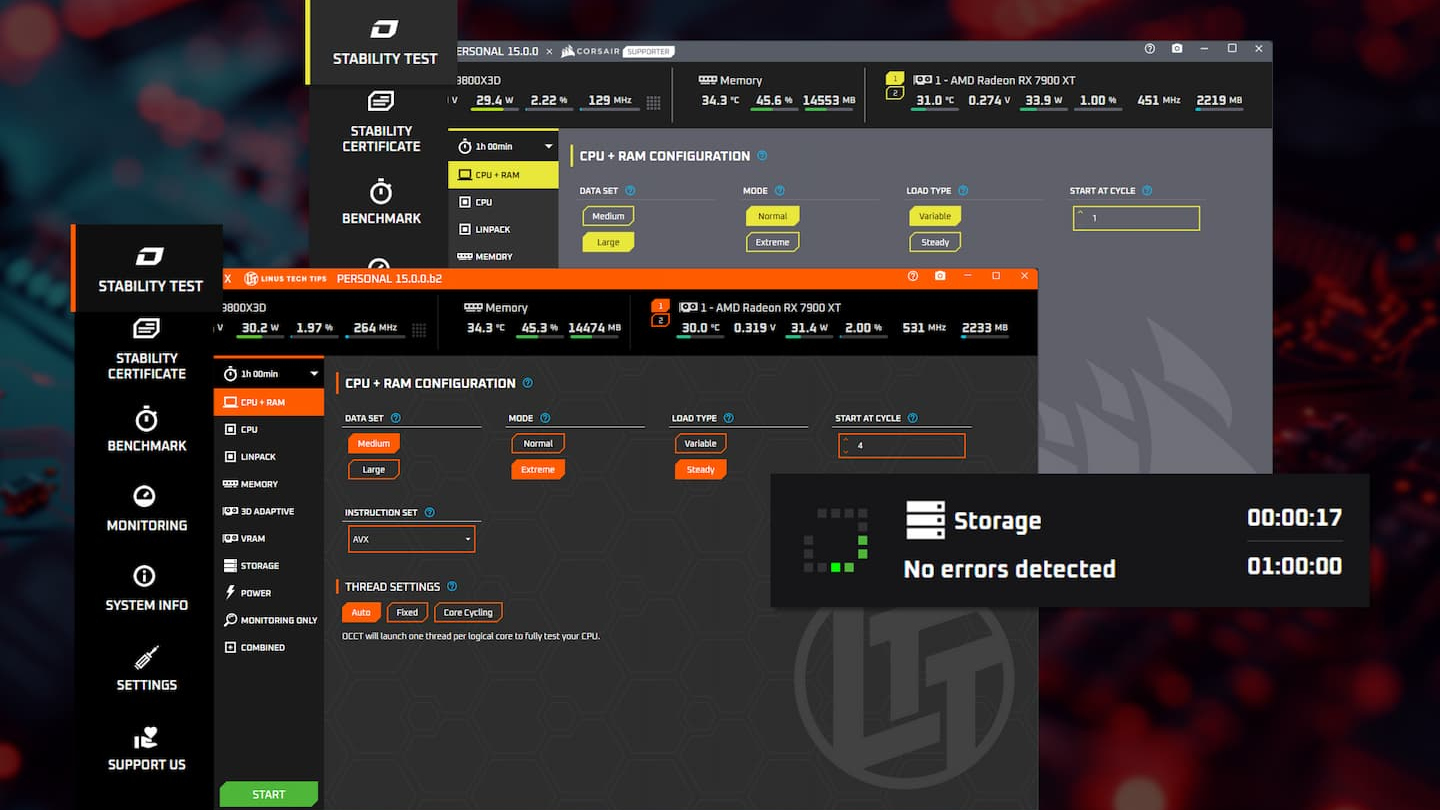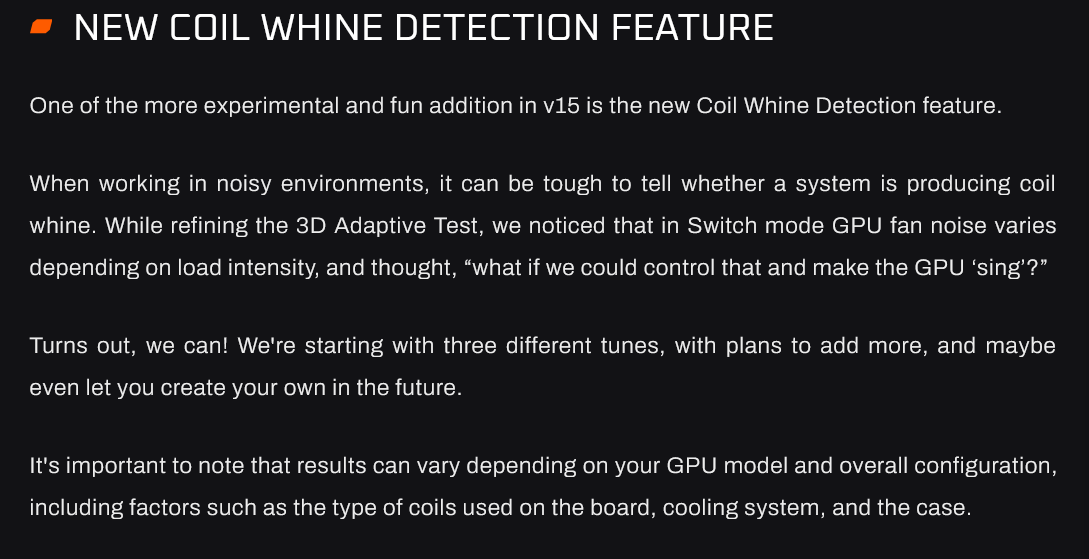OCCT version 15 adds coil whine detection that doesn't require a microphone, plays a coil whine melody instead — popular stress tester gets genius new feature to silence your PC
Magic? Not quite, but the solution is genius.

Coil whine is an irritating phenomenon where high-pitched noises can come from a graphics card, motherboard, or power supply. Sometimes it can be obvious, but sometimes it can also be difficult to track down, especially in a noisy environment. The developers behind the stress tester OCCT released version 15 of the stress tester, featuring a coil whine detection tool that doesn't require a microphone.
To do this, OCCT has developed a genius solution that turns the annoying high-pitched frequencies into a method of detecting the source of the noise. "While testing using Switch mode..." OCCT will load up the system artificially to produce one of "three pre-defined tunes", turning the noise from a consistently audible tone into a specific tune that will make the coil whine pop out above whatever other environmental noises might be hiding it.

This feature takes advantage of an inherent behavior of coil-whine, where the sound will usually increase as more power is loaded onto whatever component has coil-whine. The same can also happen when power fluctuates very fast between high and low loads. This is why most people will often only hear coil whine while they are gaming, especially while running a game at an exorbitantly high frame rate (such as 300-1000 FPS).
As a reminder, audible coil whine is a natural phenomenon that can exist in several computer hardware components, primarily graphics cards, PSUs, and motherboards. The annoying high-pitched sound is generated by a computer component's electromagnetic coils when current is passed through them.
Not only is it annoying, but coil whine is also highly inconsistent and won't behave the same from one system component to another, even if they are the exact same make and model. Even the behavior of coil whine can be different; some system components might coil whine only during certain (medium-load) workloads, while others might produce audible coil whine only at full load or while idling.
This unique addition to OCCT's feature set probably won't be beneficial for most gamers who keep their gaming PC in their bedroom. Bedrooms are usually quiet, and coil whine will be easy to detect, especially if the gaming PC is the only system in the room. But for offices, internet cafes, or any area where a system might be located in a harsh audible environment, this tester can be beneficial for hunting down coil whine and deciphering whether or not the annoying sound you're hearing is really coil whine or something dangerous.

Follow Tom's Hardware on Google News, or add us as a preferred source, to get our latest news, analysis, & reviews in your feeds.
Get Tom's Hardware's best news and in-depth reviews, straight to your inbox.

Aaron Klotz is a contributing writer for Tom’s Hardware, covering news related to computer hardware such as CPUs, and graphics cards.
-
Konomi If they can control it, then do they take requests? I'm sure a coil whine rendition of crab rave would be worth it.Reply -
Pegaroo Reply
Maybe floppotron will add it to his orchestraKonomi said:If they can control it, then do they take requests? I'm sure a coil whine rendition of crab rave would be worth it.